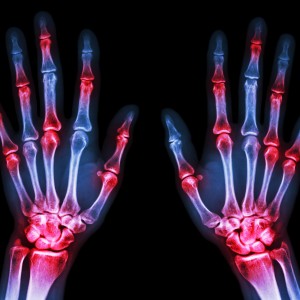 According to a recent study published in the journal Frontier in Public Health, people who suffer from depressive symptoms have a higher risk to develop physical diseases, particularly rheumatoid arthritis.
According to a recent study published in the journal Frontier in Public Health, people who suffer from depressive symptoms have a higher risk to develop physical diseases, particularly rheumatoid arthritis.
Depression is a global leading cause of disability, that affects 350 million people worldwide. According to the World Health Organization, annually more than 36 million people die of non-communicable physical diseases worldwide. Population-based studies around the world revealed that the presence of depressive symptoms is strongly associated with the presence of a wide range of physical diseases. This association has been specifically reported in subjects with chronic musculoskeletal disorders such as rheumatoid arthritis
In the study titled “The association between depressive symptoms and physical diseases in Switzerland: a cross-sectional general population study,” the research from the University of Basel and the Ruhr-University Bochum, estimated the association between depressive symptoms and physical diseases in Switzerland, as respective findings might inform about future estimates of mental and physical health care costs.
The results, based on data from 14,348 subjects aged 15 years and older living in Switzerland, revealed that depressive symptoms were associated with arthrosis and arthritis [Odds Ratio (OR) = 1.79, 95% confidence interval (CI) = 1.28-2.50] and any physical disease (OR = 1.67, 95% CI = 1.33-2.10) after controlling for multiple testing.
According to the researchers, these results contribute to a better understanding of the comorbidity of depressive symptoms and arthritis and arthritis in Switzerland and might have implications for more precise future estimates of mental and physical health care costs. “A better understanding of the association between depressive symptoms and physical diseases in Switzerland is the basis for a better health care provision for people suffering from mental disorders as well as physical diseases,” said Gunther Meinlschmidt, author of the study in a recent press release. In addition, these findings are also important for health care policy, for example by improving the precision of future estimates of societal burden and costs related to depression.
Future studies should focus on the mechanisms underlying the association between depressive symptoms and the increased risk for physical disease in general and arthrosis and arthritis in particular, the researchers concluded.


